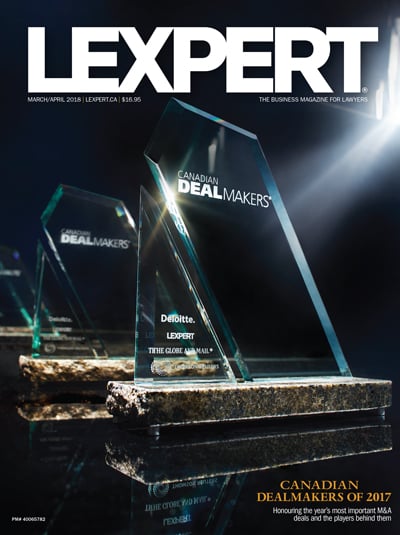IT HAS BEEN 11 YEARS SINCE LEXPERT, together with Deloitte, The Globe and Mail and Thomson Reuters, created the Canadian Dealmakers Program. The impetus was, and still is, to look behind the deals that shape Canada’s capital markets and celebrate the executives, in-house counsel, lawyers and bankers — some of this country’s sharpest minds — who together shaped the key transactions.
This is how the program works: Deloitte’s organizing committee draws together nominations, then turns them over to an adjudication panel, which determines which of the candidates best benefited their industries and Canada’s capital markets as a whole. The panelists, leaders in the business community, look for hallmarks of excellence, which can range from creating shareholder value to promoting growth and innovation or steering a deal through new legal or regulatory terrain.
Once the decisions are made, the winners are recognized at the annual Canadian Dealmakers gala dinner, which brings some of the M&A and corporate world’s leading players together to mix and mingle and celebrate the Art of the Deal. This year’s gala was held on March 8 at the Fairmont Royal York hotel in Toronto. Here are our Canadian Dealmakers award winners for 2017.
LIFETIME ACHIEVEMENT AWARD, William A. Downe, C.M.
Immediate and Past Chief Executive Officer, BMO Financial Group

William Downe is the winner of this year’s Canadian Dealmakers Lifetime Achievement Award. Mr. Downe was CEO of BMO Financial Group from March 2007 until October 31, 2017. He joined the bank in 1983 and held a variety of senior management positions in Canada and the U.S. In 1999, he was appointed Vice-Chair, Bank of Montreal and in 2001, he was named Deputy Chair, BMO Financial Group & Chief Executive Officer, BMO Nesbitt Burns. In 2006, he was appointed Chief Operating Officer of BMO Financial Group.
Mr. Downe is lead director of ManpowerGroup Inc. and a member of their Executive Compensation and Human Resources Committee. He is a member of Rush System Board, a member of the Rush University Medical Center Board of Trustees, a member of their Development and Compensation and Human Resources Committees, and co-chair of the Rush Campaign Executive Committee. Mr. Downe is an advisory board member of the Rotman School of Management Martin Prosperity Institute (MPI) at the University of Toronto, and a member of the Economic Club of Chicago. Mr. Downe also serves on the Canadian Minister of Foreign Affairs’ North American Free Trade Agreement Council.
Mr. Downe is an honorary director of Catalyst Inc., a past member of their Audit Committee and was Chair of Catalyst’s Canadian Advisory Board. He served on the board of the Business Council of Canada as well as their Governance and Nominating Committee. Mr. Downe served on the board of the International Monetary Conference (IMC) and was a member of their Nominating Committee. He was Vice-Chair, Business and Finance, on the National Executive Committee of the 2015 Governor General Canadian Leadership Conference and is Past President of the Federal Reserve Board’s Federal Advisory Council.
Mr. Downe is a member of the St. Michael’s Hospital Foundation Board, a member of its Executive Committee, and past member of the Inspire 2018 Campaign Cabinet. He is also a member of the campaign executive for The Campaign for the University of Toronto. Mr. Downe served as Chairman of the 2009 Campaign Cabinet for United Way of Greater Toronto, and is also past Chair of the Board of Directors of St. Michael’s Hospital.
Mr. Downe holds a Bachelor of Arts degree from Wilfrid Laurier University and a Master of Business Administration from the University of Toronto, and also received an Honorary Doctor of Laws from the Lazaridis School of Business and Economics at Wilfrid Laurier University. He was recognized in September 2016 by the Woodrow Wilson Center’s Canada Institute and received the Center's Award for Corporate Citizenship. In October 2017, Mr. Downe was honoured with the Rotman Lifetime Achievement Award by the University of Toronto. Prior to this, he received the Rotman Distinguished Business Alumni Award from the Joseph L. Rotman School of Management. Mr. Downe is a Member of the Order of Canada.
DEAL TEAM OF THE YEAR
Alimentation Couche-Tard
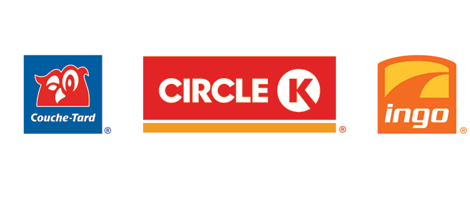
Alimentation Couche-Tard’s deal team lost no time getting to work in fiscal 2017 (which starts at the end of April) and never let up. On June 28, the company announced it had acquired San Antonio-based CST Brands Inc. for an enterprise value of US$5.27 billion. CST employs over 14,000 people in 2,000 locations throughout the Texas, the US southwest, New York and eastern Canada. The same day, the company disposed of $986 million of CST’s Canadian assets — mainly its dealers’ and agents’ network, its heating oil business, and its Montréal head office. Couche-Tard also entered into an agreement to sell 70 US company-operated sites to Petroleum Partners LLC, a US Federal Trade Commission requirement for approval.
Among other transactions, the deal team also helped orchestrate the acquisition of 53 Louisiana sites that the company operated under the Cracker Barrel brand, including 11 quick-service restaurants. It became the general partner of CrossAmerica Partners LP, which supplies road transportation fuel to more than 700 stores, with 100 per cent of its Incentive Rights for a 20.5-per-cent equity investment.
It doesn’t stop there. In 2017, the company also agreed to acquire all the issued and outstanding shares of Holiday Stationstores Inc. and certain affiliated companies, which operate 374 corporate stores and 148 franchise stores in the US Midwest and Alaska. In November, it announced it was selling Statoil Fuel & Retail Marine AS, an Oslo-based operator of gasoline stations with convenience stores, to St1 Nordic Oy of Finland, a privately owned energy group. Couche-Tard also acquired two company-operated stores through two different transactions, and completed the construction, relocation or reconstruction of 43 stores. And 2017 isn’t over yet, at least insofar as the fiscal year is concerned, so there’s no time to rest for Couche-Tard’s acquisition machine.
CONSUMER BUSINESS DEAL OF THE YEAR
Alimentation Couche-Tard acquires CST Brands
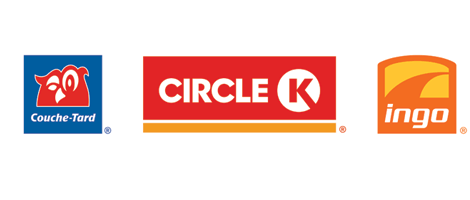
Alimentation Couche-Tard Inc., already the largest convenience store operator in Canada with more than 8,000 outlets throughout North America, continued to indulge its appetite for acquisitions in 2017 with a US$3.69-billion all-cash acquisition of rival CST Brands Inc., the fourth-largest gas and convenience-store chain on the continent.
Valued at about US$4.4 billion with debt, it is the Canadian company’s largest acquisition ever. Texas-based CST has more than 2,000 locations throughout the southwestern United States, Georgia and eastern Canada. Couche-Tard, based in Laval, Québec, said the real prize in the deal was CST’s more-than 600 stores in Texas, within the so-called “Sun Belt” — the area that stretches across the southern and southwestern portions of the United States, seen as a major high-growth market. The transaction cements Couche-Tard’s status as a top global player in the convenience-store sector and edges it ever closer to market leader 7-Eleven, owned by Seven & I Holdings Co. of Japan.
The Competition Bureau of Canada approved the CST deal with the condition that the company sell 366 CST Canadian gas stations and gasoline supply contracts to Parkland Fuel Corp. The company said it plans to use the proceeds from the sale, about $750 million, to repay part of its credit facilities. The US Federal Trade Commission also green-lighted the sale with conditions. It required Couche-Tard to sell up to 71 US stores in eight states: Arizona, Colorado, Florida, Georgia, Louisiana, New Mexico, Ohio and Texas.
When the dust settled, the CST transaction left Couche-Tard with 1,263 new Canadian and US sites worth US$3.7 billion to be folded into its North American network.
VALUE CREATION AWARD
CGI Group Inc.

Even giant companies can create great value for their investors. Take Montréal-based CGI. The Canadian global information technology, consulting, systems integration, outsourcing and solutions company has left stock market indices eating its dust in the past three years.
In 2014, it was already one of the largest independent business processes and IT services provider in the world, and the biggest tech firm in Canada. But CGI made a tremendous number of acquisitions over the past couple of years and shareholders liked what they saw. In March 2016, CGI acquired JSL Software Solutions in March; in April it bought Alcyane Consulting; in October, Coupon Inc. (none of the deal terms were disclosed). In November, CGI Technologies and Solutions snapped up Boston-based Collaborative Consulting LLC for approximately $150-million. By then, CGI ranked No. 955 on the Forbes Global 2000.
Last year was just as frenetic. CGI bought ECommerce Systems Inc. and Computer Technology Solutions Inc. on the same day in April. It acquired Summa Technologies Inc. in August (all deal terms were undisclosed), in August CGI Nordic Investments acquired Affexto Oyj also in August for $166.6 million and the next day CGI announced the purchase of Summa Technologies Inc.
The bottom line? From the first trading day of 2014 to the final trading day of 2017, the S&P/TSX Composite Index was up 19 per cent and the S&P 500 IT Services Industry Index was up 12 per cent. CGI? Up 92 per cent. That’s value no matter how you slice and dice it.
Canada Goose

After a long drought of initial public offerings in 2016, the proposed IPO of luxury parka maker Canada Goose in the first quarter of 2017 was met with an ecstatic reaction from market participants looking to branch out. The Toronto-based retailer’s IPO raised $340 million, with shares priced at $17, above the marketed range of $14 to $16. The over-allotments were all grabbed up.
In their first day of trading in March, subordinate voting shares — listed on the New York Stock Exchange and the Toronto Stock Exchange under the ticker “GOOS” — soared over 25 per cent to close at $21.53 in Toronto, giving the company a market value of about $2.3 billion. The shares were closing in on $40 by the end of 2017 and on an upward trend.
Canada Goose was taken public by Bain Capital LLC, which bought a 70-per-cent stake in the clothing manufacturer in 2013. The private equity firm continues to own a controlling interest in the company following the IPO, according to the prospectus.
Founded in a small warehouse in Toronto in 1957, Canada Goose has grown into one of the world’s leading makers of performance luxury apparel. The company has already opened two flagship stores to sell directly to the public, in Toronto and in New York. In November, it announced it was opening three new stores: in Boston, Calgary and Tokyo.
INTEGRATION EXCELLENCE AWARD
OpenText acquires Dell’s EMC Enterprise Content Division
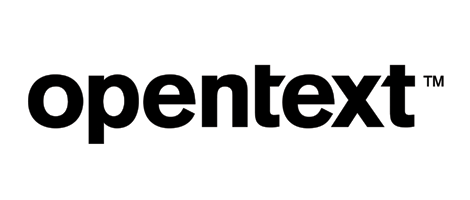
Canada’s largest software company, OpenText, took a step towards becoming even bigger when it bought Dell-EMC’s Enterprise Content Division for US$1.62 billion, with an eye towards its expanding its services to larger businesses. It was the company’s largest purchase ever, and makes OpenText the world’s largest vendor of software that helps businesses organize and store their documents. The purchase also increases OpenText’s geographic exposure and presence in developing markets.
“Customers are rethinking their enterprise platforms to better compete in the age of digital,” OpenText Chief Executive Officer and Chief Technology Officer Mark Barrenechea said when the deal was announced.
The acquisition of the EMC Enterprise Content Division and assets — especially Documentum, an enterprise content management platform — significantly strengthens the Waterloo, Ont.-based company’s Enterprise Information Management platform in the cloud.
The enterprise cloud computing market is intensely competitive with companies including Microsoft Corp., Amazon.com Inc. and Google Inc. all offering rival solutions for businesses. OpenText says it differentiates itself by owning its own data centres and infrastructure around the world, which helps ensure businesses comply with privacy and security legislation in their own jurisdictions.
The synergies of the deal were expected to be immediately accretive to earnings. Barclays, which acted as a financial advisor, has provided a US$1-billion debt commitment for the deal, OpenText said.
AGRICULTURAL & FISHERIES DEAL OF THE YEAR
Cooke buys Omega Protein
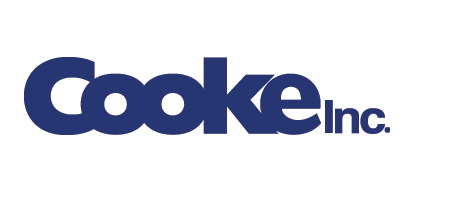
New Brunswick seafood giant Cooke Aquaculture is continuing a remarkable growth spurt with the US$500-million purchase of Omega Protein Inc., a century-old Houston-based fish oil and fishmeal company.
Black Harbour-based Cooke Inc., through subsidiary Cooke Aquaculture, has salmon-farming operations in Atlantic Canada, Maine, Washington State, Chile and Scotland, as well as seabass- and seabream-farming operations in Spain. The company, which employs roughly 5,000 people worldwide, has been growing quickly in recent years.
In 2015, the family created Cooke Seafood USA Inc. and entered the wild fishery market by acquiring Wanchese Fish Co. Inc. In 2016, it expanded its wild fisheries business through the acquisition of Icicle Seafoods Inc. in the US, as well as the assets of Fripur S.A., the largest fishing company in Uruguay.
Omega, its latest acquisition, is a nutritional product company that develops and sells products designed to improve the nutritional integrity of foods, dietary supplements and animal feeds. Omega’s animal-feed ingredients are on track to receive Marine Stewardship Council sustainability certification. Cooke CEO Glenn Cooke said that made Omega an attractive target, because sustainability is “an important component in Cooke Aquaculture’s production of healthy Atlantic salmon.”
With roughly 1,000 employees, Omega operates seven manufacturing facilities in the US, Canada and Europe and more than 30 vessels that harvest menhaden, a fish abundantly found in the Atlantic Ocean and Gulf of Mexico.
BUSINESS SERVICES DEAL OF THE YEAR
Ritchie Bros. acquires IronPlanet
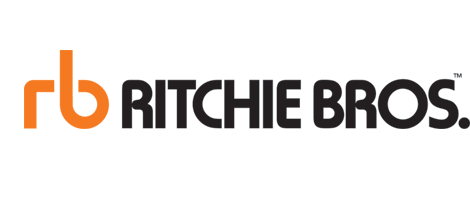
When BC-based Ritchie Bros. did the cash and share deal for IronPlanet Inc. for $758.5 million, the company called it a transformative transaction, one that will help the Canadian company build its multi-channel platform, global reach and long-standing customer relationships.
Vancouver-area based Ritchie Bros. is the world’s largest heavy-equipment auctioneer and provider of end-to-end services. It operates in sectors such as construction, transportation, agriculture, energy, mining, forestry, and oil and gas.
The acquisition of IronPlanet accelerates its strategy of becoming a one-stop, multi-channel company where customers can buy, sell or list equipment using whichever method they prefer, whether onsite or online.
Pleasanton, Ca.-based IronPlanet, backed by giant Caterpillar Inc., is a privately held US e-commerce site that focuses largely on the needs of corporate accounts, equipment manufacturers, dealers and government entities. It conducts its sales primarily through online-only platforms, with weekly online auctions and in other equipment marketplaces.
Ritchie Bros. said it will be combining the two sales forces in the US, Canada and Europe. It also announced it was partnering with Caterpillar for five-year live onsite and online auctions of Caterpillar’s used equipment. The deal will replace and expand on existing agreements between Caterpillar, its dealers and IronPlanet.
FLEETCOR Technologies acquires Cambridge Global Payments
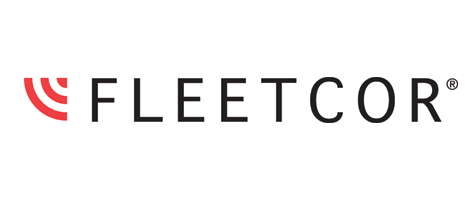
When Georgia-based FLEETCOR Technologies Inc. agreed to pay US$505 million for Cambridge Global Payments, a privately held Toronto-based business-to-business international payments provider, it was for one reason: to expand its corporate payments system across the border.
FLEETCOR, a global provider of fuel cards and workforce payment products to businesses, focuses on US accounts payable. Cambridge processes over $20 billion in business-to-businesss cross-border payments annually, helping 13,000 clients make international payments to suppliers and employees. The Canadian company has proprietary technology and serves small and mid-size as well as mid-cap businesses, giving its clients the flexibility of making wire transfers, electronic fund transfers, draft and cheque payments in over 140 currencies.
Ron Clarke, FLEETCOR’s CEO, called Cambridge “a global leader in the industry,” and said “we like the strategic fit.” He also expressed a belief that the merged company’s global accounts-payable automation capability will differentiate FleetCor’s offering in the marketplace “to deliver a more holistic global … solution.”
FOREIGN OUTBOUND DEAL OF THE YEAR
Enbridge Inc. buys Spectra Energy
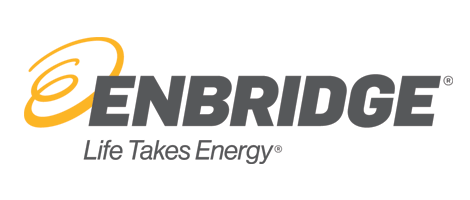
Enbridge Inc.’s $37-billion all-stock acquisition of Houston-based Spectra Energy Corp. is the largest foreign acquisition ever completed by a Canadian company. It’s also the most significant energy deal since oil and natural gas prices hit their worst slump in a generation in mid-2014. The takeover underscores the pressure on pipeline companies that must wrestle with overcapacity and slowed dividend growth.
The deal to create the largest North American energy infrastructure company, announced in September 2016, had to pass regulatory hurdles. The US Federal Trade Commission approved it, but with conditions aimed at preventing a reduction of competition among natural-gas pipeline providers off Louisiana’s coast. Enbridge owns the Walker Ridge Pipeline, while Spectra has an indirect stake in the competing Discovery Pipeline. The FTC noted in a legal filing that the merger would give the merged company interests in the two competing pipelines in parts of the Gulf of Mexico.
To resolve the antitrust concerns, Enbridge agreed to establish firewalls that prevent it from accessing non-public information about the Discovery Pipeline, among other steps. It also agreed to notify the FTC before increasing its stake in the parent of the Discovery Pipeline or acquiring other pipelines in the region — a condition that will remain in place for the next two decades.
ENERGY DEAL OF THE YEAR
Enbridge Inc. acquires Spectra Energy
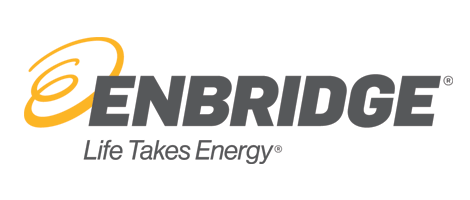
It’s not hard to see why Canada’s Enbridge Inc. shelled out $37 billion in an all-stock deal to acquire Spectra Energy Corp. of Houston. The combination creates the largest North American Energy Infrastructure company by market value in North America, with an enterprise value of roughly $165 billion.
Calgary-based Enbridge has made no secret in the past year that it was looking to diversify its business, which was heavily weighted in oil. With the sustained drop in crude prices, it was not the only energy company looking to rewrite its playbook.
Spectra’s sizeable natural gas pipeline assets gave Enbridge a way to shift its business away from its main model of moving crude from Western Canada to refiners on the US Gulf Coast. Spectra’s network ships natural gas to the US East Coast. The joined company will control over 30,000 kilometres of oil and 30,0000 kilometres of natural-gas pipelines across North America, almost perfectly balanced between the two. Combining those two networks will allow the merged entity to deliver oil or gas from all of the major production areas in North America to most of the main markets for those commodities.
Enbridge shareholders will own about 57 per cent of the combined company, which is expected to deliver annual savings of $540 million by late 2018. When earnings for the quarter ended Sept. 30 were released in November 2017, the combined company reported a third-quarter profit of $765 million, compared with a loss of $103 million for the same quarter a year earlier.
FINANCIAL DEAL OF THE YEAR
CIBC buys PrivateBancorp

Canadian Imperial Bank of Commerce gained an important foothold in the United States with the US$5.89-billion cash-and-share deal to acquire Chicago-based PrivateBancorp Inc., a US commercial bank with 34 offices in 12 states. The transaction allows CIBC to offer an integrated Canada-US banking platform, in a bid to retain clients who had been drawn to rival US banks.
PrivateBancorp has about $20 billion in assets, and serves mainly mid-market companies, business owners and wealthy families. It comes with strong wealth-management capabilities for high-net-worth clients, has delivered consistent loan growth and has an experienced management team that has agreed to stay on, CIBC said.
CIBC and other major banks are exposed to Canada’s overheated housing markets. With concerns mounting over home prices in Toronto and Vancouver, rebalancing its earnings mix though the strategic acquisition of a bank outside Canada was praised on the Street as a smart move.
While the deal had the support of both boards, it took a little bit of convincing for PrivateBancorp Inc. investors to approve. CIBC had to sweeten the pot twice from its original US$3.8-billion offer in order to win shareholder support. The Bank expects the deal to be immediately accretive to earnings.
Toromont Industries Ltd. buys Hewitt Group
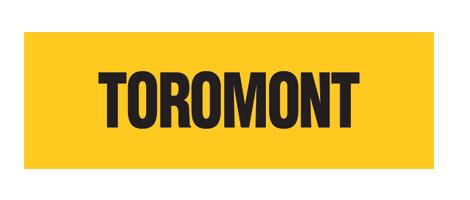
Canada’s Toromont Industries Ltd., a dealer in Caterpillar heavy equipment, reached a deal to buy a key rival, privately held Hewitt Group, for US$817-million in cash and stock in a bid to not only ride a mining-sector recovery, but also benefit from the massive pool of planned public infrastructure spending. It is the largest acquisition in Concord, Ont.-based Toromont’s 56-year history.
The purchase adds 2,100 employees to its existing 3,600 — and gives the company another 45 dealerships in Québec, the Maritimes, Labrador West and Ontario to add to its existing 100 locations, creating one the largest sales territories in the Caterpillar dealer network. It will now have dealerships in Canada’s seven eastern provinces and the northern territory of Nunavut.
Scott Medhurst, Toromont’s Chief Executive Officer, said the purchase “will allow us to better capitalize on organic growth opportunities given the recovery of the mining sector that we are currently experiencing and the promise of significant infrastructure investment.”
For the year ended Dec. 28, 2016, Point Claire, Québec-based Hewitt generated revenue of more than $1 billion, operating profit of $66.4 million and net earnings of $46.6 million. Toromont said the acquisition is expected to add to net earnings this year.
TMX Group buys Trayport Holdings
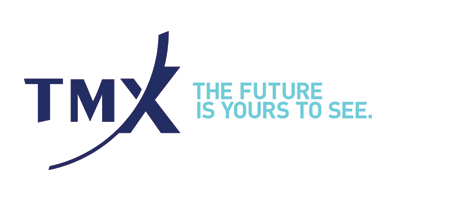
Canada has long been known for its Energy expertise, and so TMX Group Ltd., owner of the Toronto Stock Exchange and TSX Venture Exchange, clearly saw potential synergies when it seized the opportunity to buy Trayport, a London-based energy trading software firm, from Intercontinental Exchange Inc., or ICE, for $931 million.
TMX said it did the deal in the hope of accelerating its global expansion, to increase the portion of its revenue from recurring sources, and enhance the portfolio of analytics products in its Market Insights business, which provides financial content, tools and applications, and capital-markets analytics.
Trayport provides services to energy commodities traders, exchanges, wholesale brokers and central clearing counterparties. It has offices in London, New York and Singapore, and employs almost 250 people.
As part of the deal for Trayport, TMX agreed to sell ICE its Natural Gas Exchange Inc. and Shorcan Energy Brokers Inc., paying the remaining $592 million owed for Trayport in cash.
ICE, which owns the New York Stock Exchange, announced it would sell Trayport this past summer after losing an appeal to overturn a decision by Britain’s competition watchdog requiring its divestiture in order to maintain competition in the UK’s energy markets. TMX Group said the transaction was expected to have a positive impact on its adjusted earnings per share, and be accretive in 2018.
INFRASTRUCTURE & UTILITIES DEAL OF THE YEAR
Alectra Inc. acquires Hydro One Brampton
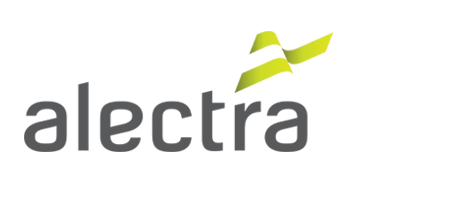
When Alectra Inc. completed its acquisition of Hydro One Brampton from the Province of Ontario on January 31, 2017, it created the largest municipally owned electricity utility in Canada based on the number of customers served.
Alectra itself was formed on Jan. 31, 2017, through the merger of Enersource, Horizon Utilities and PowerStream. The Hydro One Brampton acquisition completes the transaction, which was first announced in 2015. Alectra, through its subsidiary Alectra Utilities Corp., serves about a million homes and businesses in the Greater Golden Horseshoe Area: 1,800 square kilometres that includes 15 Ontario communities and cities such as Mississauga, Hamilton, St. Catharine’s, Barrie, Brampton, Greater Waterloo and Niagara.
The company said it expects that, over time, efficiencies from the deal will reduce pressure on customer distribution rates, improve customer service and system reliability, and add more robust emergency-response capabilities for inclement weather.
“We are committed to providing best-in-class service to the residents and businesses … across the entire Alectra service territory, and growing the value of the company to provide optimal returns for our shareholders,” Alectra President and CEO Brian Bentz said when the deal was announced.
Alectra said it will also increase investments in innovation and technologies, providing better energy choices for customers in its service territory and beyond.
Rogers Sugar’s Lantic subsidiary buys L.B. Maple Treat Corp.
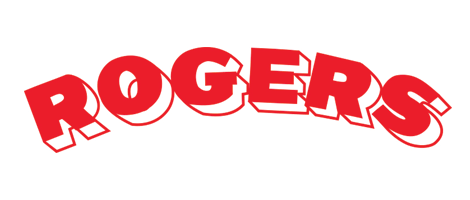
Rogers Sugar Inc. spent $160.3 million (subject to post-closing adjustments) to buy L.B. Maple Treat Corp., known as LBMT, for one sector of its market: consumers who want unrefined natural sweetener options. Rogers did the deal through its wholly owned subsidiary Lantic Inc.
John Holliday, the parent company’s President and Chief Executive Officer, said Lantic is acquiring LBMT “to build a new natural sweetener growth platform that joins our 125-plus year heritage business operated and headquartered in Montreal, Québec.” He called the transaction “significant for Rogers Sugar,” saying it fits perfectly with the company’s long-term strategy to continue to build and invest in natural sweetener businesses and products.
Lantic has been in the sugar business for over 100 years and is the leading refiner, processor, distributor and marketer of sugar products in Canada. As the sole sugar processor in Western Canada, it supplies over 90 per cent of the region’s demand for refined sugar, and is one of only two major sugar refiners in Eastern Canada. LBMT is one of the world’s largest branded and private-label maple syrup bottling and distribution companies. It has two bottling plants in Québec and one in Vermont. The business has distribution centres in Eastern and Western Canada, the US and Australia.
Holliday said that, while company sees opportunities for various synergies between Lantic and LBMT, LBMT will be operated as a separate entity from its headquarters in Granby, Québec.
MINING DEAL OF THE YEAR
PotashCorp merges with Agrium to form Nutrien
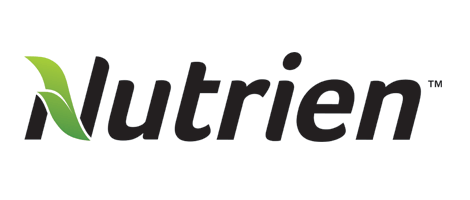
A friendly US$18.33-billion all-share merger combining Potash Corp. of Saskatchewan Inc.’s huge fertilizer mining operations with Calgary-based Agrium Inc.’s extensive direct-to-farmer global retail network is seen as a transformational transaction that creates a Canadian agricultural giant. The new company, Nutrien Ltd., has an enterprise value of roughly US$36 billion, making it the largest crop-nutrient company in the world, with 20,000 employees, annual revenue of $20.6 billion, and operations in 18 countries.
The move comes as prices for potash and other fertilizers have been sliding for years, and represents an attempt to create value in a fiercely competitive market. The companies expect to save up to $500 million a year through cost-cutting, sharing storage and shipping networks, and using mines and factories more efficiently.
The proposed transaction, approved by Canada’s Competition Bureau, had conditions imposed by several international regulators. The merger received clearance in Brazil, Russia and India, which demanded some asset sales. China’s ministry of commerce also required PotashCorp to sell its minority holdings in Arab Potash Co. and Sociedad Quimica y Minera de Chile S.A. within 18 months of closing, and in Israel Chemicals Ltd. within nine months. The Chinese approval also requires PotashCorp to convert its equity interest in Sinofert Holdings Ltd. to a passive investment, and a commitment that Canpotex, a potash consortium majority-owned by Potash, will remain a reliable supplier of potash to China.
In addition, Agrium has to sell off some US assets to address American regulatory concerns. With those concerns resolved, the US Federal Trade Commission approved the deal, which closed on January 2, 2018.
TD Securities

TD Securities is recognized as the Investment Bank of the Year (By Volume), as in the number of deals that, according to the TR League Table, have a reported Advisor. There are 598 deals on the TR League Table for which there is a reported Financial Advisor. TD has credits for 49 of those deals and thus leads by volume.
Included in their deals: TD Securities was part of the team advising AltaGas Ltd. in its $4.52-billion (all figures US$) purchase of WGL Holdings Inc., a Washington-based utility holding company. TD counselled Canadian Natural Resources on its $5.45-billion sale of its 60-per-cent interest in the Athabasca Oil Sands Project, jointly owned by Shell Canada Ltd., Marathon Oil Corp. and Chevron Canada Ltd. The Bank advised Dominion Diamond Corp., a Yellowknife-based diamond miner, on its $1.45-billion sale to The Washington Cos.
TD Securities was also on for ViaWest Inc. in its $1.68-billion sale to Peak 10 Inc., a unit of GI Partners LLP, from Shaw Communications Inc.
TD’s investment bankers also advised L.B. Maple Treat Corp. on the $31.3-million acquisition of a Québec-based food manufacturer, and counselled Rogers Sugar Inc. on the $124.4-million purchase of L.B. Maple Treat. The Bank was on for K-Bro Linen Inc. in its $46.3-million purchase of Fishers Topco Ltd., a UK-based laundry and dry-clean operator. It acted for Sprott Asset Management LP in the $34-million sale of its diversified fund business to an investor group.
MID-MARKET INVESTMENT BANK OF THE YEAR (BY VALUE AND VOLUME)
TD Securities

TD Securities is the winner of the Mid-Market Investment Bank of the Year (By Value and by Volume). A mid-market deal, for the purposes of this Award, is defined as a deal up to US$1 billion excluding equity carve-outs, withdrawn deals and open market repurchases. It is a category that TD Securities dominated by value and volume.
Acting for the acquirers, TD Securities advised Goldcorp Inc. in its $300-million purchase of a 25-per-cent ownership interest in Barrick Gold Corp.’s Cerro Casale project in Chile, done in a privately negotiated transaction. TD Securities also advised Linamar Corp. in its planned C$936.6-million acquisition of MacDon Industries Ltd., a Winnipeg-based manufacturer of farm machinery and equipment.
The Bank also advised many target companies. TD was on for Cenovus when Whitecap Resources Inc. bought a 62-per-cent interest in the Whitecap’s Weyburn Assets for an estimated C$940 million. It advised Skyline Apartment Property, a Guelph-based real estate investment trust, on its $173 million sale of Skyline Apartment REIT’s Hamilton Properties to Q Management LP, a unit of Conundrum Capital. Its bankers acted on the $559.2-million sale of OneREIT’s portfolio of 44 retail properties to Acquisitions Inc., a unit of Strathallen Capital Corp.
TD Securities advised Dream Office REIT, a Toronto-based lessor of real estate property, on the sale of its 12 office buildings to an undisclosed buyer for $200 million. It advised Dream Office again when it sold off its Kitchener-Waterloo portfolio to an undisclosed buyer for a total $140 million. TD Securities was part of the group counselling Trimont Financial Ltd. when Trimont, a unit of the Wawanesa Mutual Insurance Co., acquired Western Financial Group Inc. from Desjardins Financial Corp. Inc., owned by Fédération des Caisses Desjardins du Québec, for an estimated $775 million.
Repeat business also proved key to TD Securities’ volume proposition. The Bank advised Kew Media Group Inc. on the acquisition of Media Headquarters Film & Television Inc., a Toronto-based provider of motion picture and video-related services, for $4.3 million. Kew Media also called on TD Securities when it concurrently bought or agreed to buy Content Media Corp. PLC, Architect Films Inc., Bristow Global Media Inc., Frantic Films Corp. and Our House Media Inc. And Kew again used TD Securities for the acquisition of Bristow Global Media Inc., a Toronto-based producer of films and videos, for $7.1 million.


